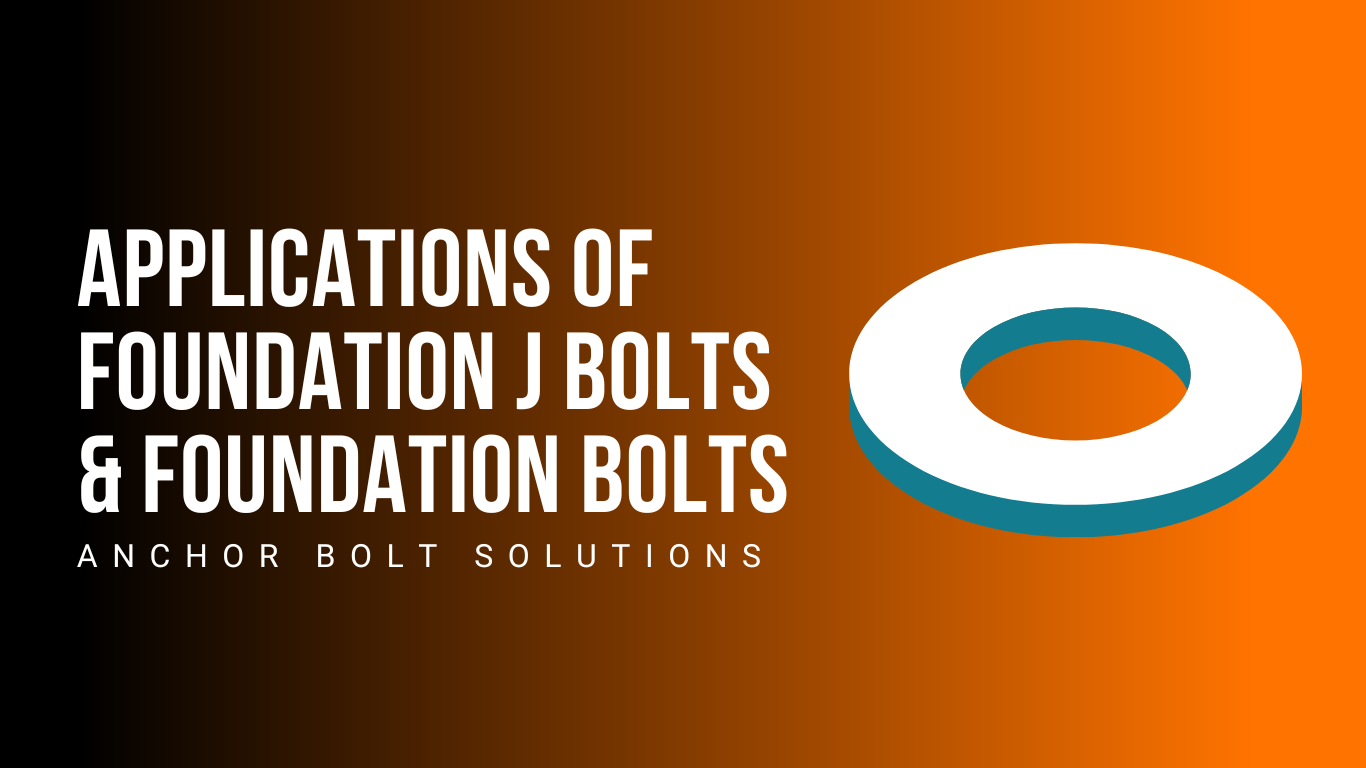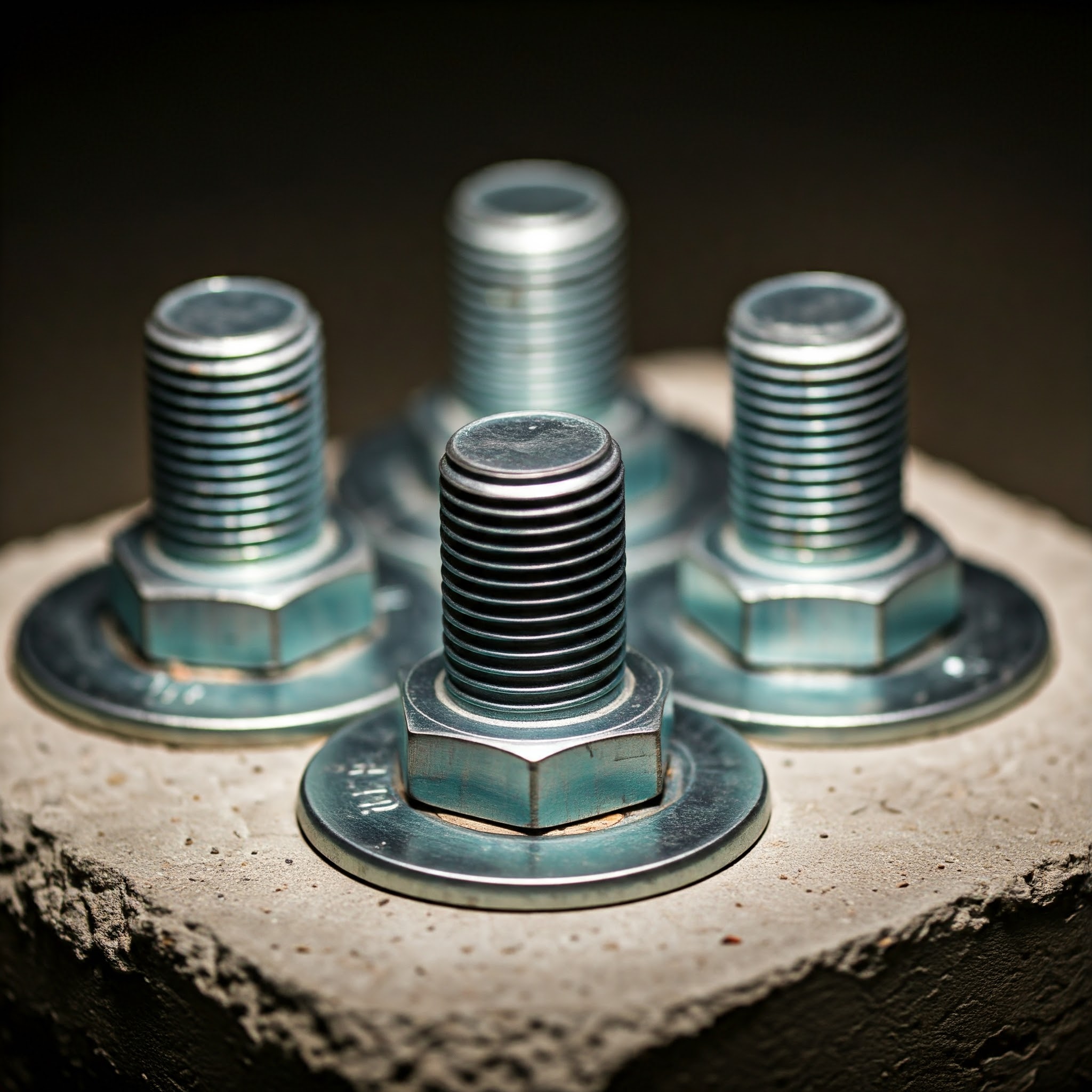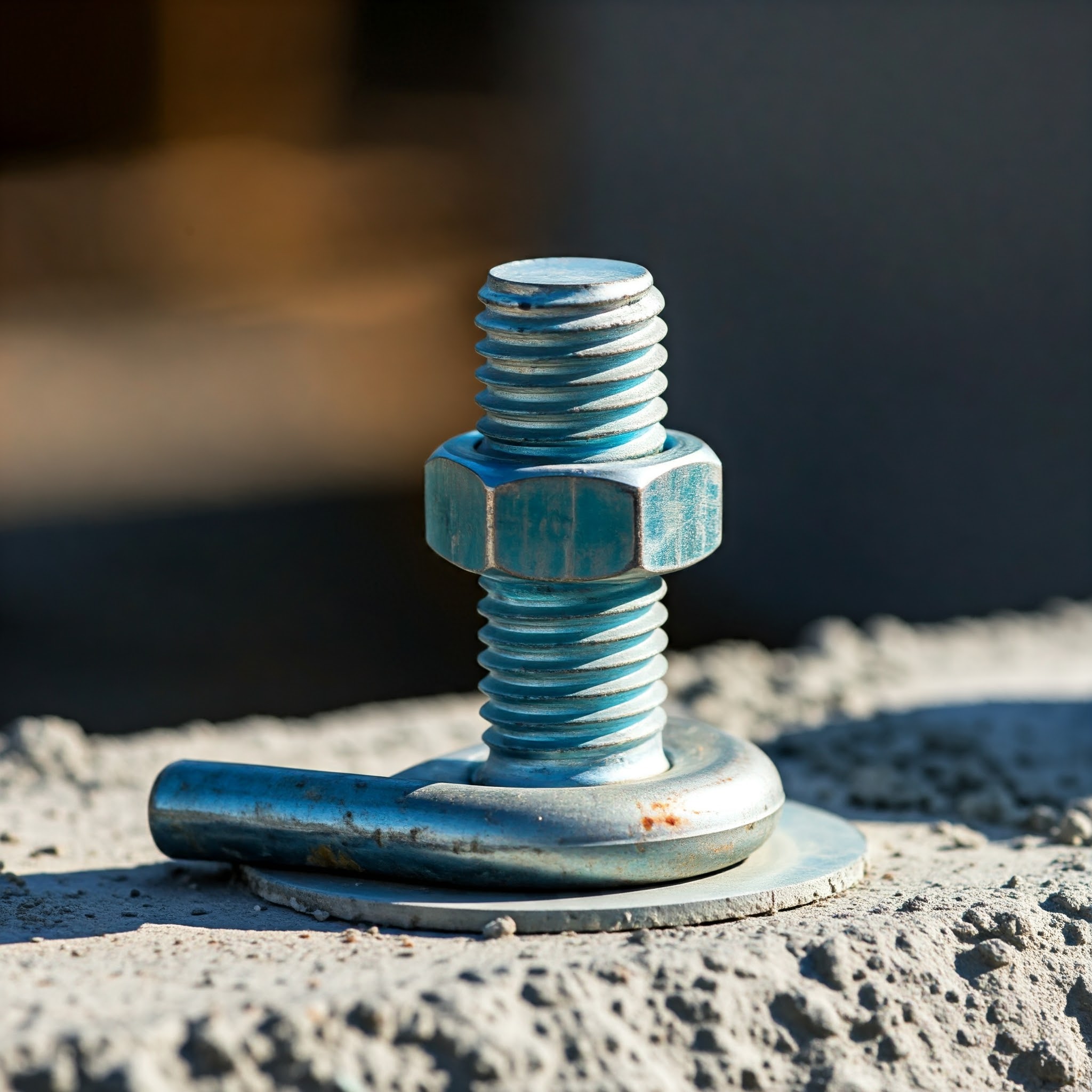Applications of Foundation J Bolts & Foundation Bolts - Anchor Bolt Solutions

If you're in the construction or heavy infrastructure industry, you're probably familiar with the terms foundation J bolts and foundation bolts. These essential fasteners are the backbone of many large projects, ensuring stability, safety, and durability. But how are they actually used, and why are they so important?
Whether you're building skyscrapers, bridges, or industrial machinery foundations, having the right bolt can make or break your project—literally. Let's explore how foundation bolts, particularly J bolts, are applied in different scenarios and how they provide robust anchor solutions for various structural projects.
Table of Contents:
- Key Applications of Foundation J Bolts
- Key Applications of Foundation Bolts
- Key Difference between Foundation J Bolts & Foundation Bolts
- Types of Foundation Bolts
- Advantages of Using Foundation J Bolts & Foundation Bolts
- How to Select the Right Foundation Bolt for Your Project
- Installation Guidelines for Foundation Bolts
- Conclusion
Key Applications of Foundation J Bolts
Foundation J bolts are named after their unique "J" shape, which enhances their ability to anchor heavy objects securely. They are widely used in concrete structures for anchoring because of their curved hook, which makes them extremely durable and able to resist pulling forces. Here’s where they commonly shine:
- Securing Steel Columns: One of the primary applications of J bolts is in securing steel columns to concrete foundations. The hook provides an extra layer of anchorage, ensuring that the bolts remain secure under stress and load.
- Machinery Foundations: For heavy machinery, precise and secure anchoring is non-negotiable. foundation J bolts are often used to anchor machines into concrete slabs, ensuring that vibrations and shifts do not compromise the equipment's stability.
- Telecommunication Towers: The fast growth of communication technology means more towers are being erected globally. J bolts play a crucial role in ensuring these towers remain stable, especially in areas prone to high winds or other environmental stresses.
- Light Poles and Street Lighting: foundation J bolts are also used to secure light poles and street lights. These bolts ensure that the structure stands strong, even in adverse weather conditions like heavy winds or storms.

Key Applications of Foundation Bolts
Foundation bolts are versatile and used in a wide array of industrial and construction projects. These fasteners provide a firm hold and stability, whether in mechanical setups or large-scale infrastructure. Here’s how they are applied:
Key Features of J-Bolts
- Industrial Equipment Installation: foundation bolts are used extensively for anchoring industrial equipment, such as compressors, pumps, and turbines, to their concrete foundations. This ensures that machinery remains stable during operation, minimizing vibrations and movement.
- Bridges & Infrastructure Projects: In large infrastructure projects like bridges and highways, foundation bolts help secure support beams and girders to the concrete structure. Their use guarantees that the structural elements stay in place, even under heavy loads and dynamic stresses.
- High-rise Buildings: Foundation bolts are essential in anchoring columns and beams to the foundation of skyscrapers and tall buildings. They help distribute the load and ensure the structural integrity of the building, especially in areas with seismic activity.
- Wind Turbines: With the increasing push for renewable energy, wind turbines are being installed globally. Foundation bolts are used to secure these large, heavy structures to their foundations, ensuring they can withstand both wind loads and the mechanical forces of turbine operation.
Key Differences Between Foundation J Bolts and Foundation Bolts
- Shape: Foundation J bolts have a J-shaped design, while foundation bolts are typically straight.
- Application: These bolts are commonly used in applications where the structure needs to be anchored to a concrete foundation. foundation bolts, on the other hand, can be used with various foundation materials, including concrete, steel, and wood.
- Installation: foundation J bolts are inserted into the concrete and secured with a nut and bolt. Foundation bolts can be installed in different ways depending on the application and foundation material.
Types of Foundation Bolts
foundation boltss come in various designs and materials to suit different applications. Some of the most common types include:
- L Bolts: These are used for light to medium loads and have an "L" shape, similar to J bolts.
- Straight Anchor Bolts: These are long, straight bolts that offer deep anchorage and are used in high-load applications.
- Hook Bolts: These bolts have a hook at one end and are designed to provide better anchorage in concrete.
Each of these bolts has specific applications, depending on the load, environment, and required performance.

Advantages of Using Foundation J Bolts & Foundation Bolts
- Corrosion Resistance: Many foundation bolts, including J bolts, are made from stainless steel or other corrosion-resistant materials, making them ideal for outdoor use in harsh weather conditions.
- High Load Capacity: Foundation bolts are designed to bear extremely high loads, making them essential for projects like high-rise buildings, bridges, and machinery installation.
- Durability: Both foundation J bolts and regular foundation bolts are built to last, providing long-term structural support that can withstand years of wear and tear.
- Customizable: Many manufacturers offer custom foundation bolts tailored to specific project needs, such as different lengths, diameters, and coatings.
How to Select the Right Foundation Bolt for Your Project
When selecting foundation bolts, it’s important to consider:
- Load Requirements: What’s the maximum load your bolts will need to support?
- Environmental Factors: Will the bolts be exposed to harsh weather conditions or corrosive environments?
- Material Type: Stainless steel is ideal for corrosion resistance, while other materials may be more cost-effective for indoor applications.
Consult with your manufacturer or supplier to choose the most appropriate bolt for your specific application.

Installation Guidelines for Foundation Bolts
Proper installation is key to ensuring that foundation bolts perform as expected. Here are a few best practices:
- Pre-Planning: Always ensure that the bolt holes are properly aligned before pouring concrete.
- Anchor Depth: The deeper the bolt is embedded, the more secure the anchorage will be. Check manufacturer guidelines for the recommended embedment depth.
- Use of Grout: Sometimes, grouting is needed to ensure there are no air gaps between the bolt and the concrete.
- Torque Wrench: When tightening nuts on foundation bolts, use a torque wrench to ensure even tension across all bolts.
Conclusion
Foundation J bolts and foundation bolts are indispensable in many industries. Whether securing machinery, building towering structures, or ensuring infrastructure stability, these bolts offer reliability, strength, and versatility. Understanding their applications and advantages helps ensure your project’s success, no matter how big or small.
When you choose the right bolt for the job and follow proper installation procedures, you can trust that your structure will remain stable for years to come. So, whether you’re planning a new construction project or need a reliable anchor solution, foundation bolts will ensure your work stands the test of time.
About Sachin Shim
Our range of shims includes metal, machine, industrial, precision, adjustable, machinery, engineering, custom, and alignment shims. These shims are designed for various applications, such as machinery alignment, fine adjustments in industrial-grade machines, engineering projects requiring steel shims, heavy-duty machinery requiring versatile metal shims, aerospace applications demanding precision stainless steel shims, automotive use requiring adjustable aluminum shims, precision engineering projects using high-quality brass shims, construction applications requiring durable plastic shims, specialized machinery needing customized shim solutions, and manufacturing processes requiring fine-tuning shims for precise alignment and accurate machine setup and leveling.
Author
Meet Seema, our expert author in industrial materials with a deep understanding of Bolts. With years of experience, Seema brings valuable insights and expertise to this guide, making them a trusted source for all things related to Bolts. Join us as we delve into the art of Bolts with Seema leading the way.
List Other similar blogs







